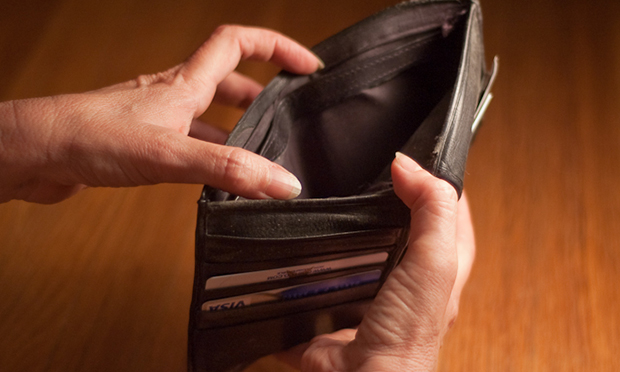Anti-poverty charity slams Town Hall’s ‘absurd’ council tax proposals

Out of pocket: working age people face a higher council tax bill. Photograph: NoHoDamon
Hackney Council’s plans to change its council tax relief scheme have been branded “absurd” by a London-wide anti-poverty charity.
Raji Hunjan, chief executive of Zacchaeus 2000 (Z2K), slammed the Town Hall’s plans announced last month under which people of working age who get help paying their council tax would see their yearly bill rise by up to a third.
She also raised concerns about the Council’s use of bailiffs to recover money from those who were unable to pay their minimum contribution, saying that they “harassed” people.
New figures released under the freedom of information act reveal that bailiffs have been instructed against more than three households getting help paying council tax every day since 2013.
The Council is currently consulting on proposed reforms to its Council Tax Reduction Scheme (CTRS), which helps 32,000 people on low incomes to pay their council tax, at a cost of £25.5 million per year.
It says the cost of the scheme is due to rise by £500,000 next year and is now “out of date”.
Its preferred option is to increase the proportion of council tax paid by working age people who get help paying their bill from 15 to 20 per cent to offset additional costs and government cuts.
Currently, a Hackney resident liable for council tax could get up to 100 per cent of it paid through the CTRS if they are a pensioner, or up to 85 per cent if they are of working age.
For a single person living in a Band B property who has no children and receives Employment Support Allowance, the change would see their contribution rise from £2.23 to £4.09 per week – or an extra £96.72 every year.
Pensioners would not be affected by the proposed changes to the scheme.
The council says the change is necessary “in light of the increasing financial pressures being brought to bear on the council”.
But Hunjan told the Citizen: “It is absurd that Hackney Council should consider increasing its council tax charges for those on benefits, when all evidence points to the fact that many of those already living in poverty cannot afford the additional tax burden.
“Hackney’s original decision to charge has already left tens of thousands of local families and vulnerable single people facing a choice between eating, heating and paying its poll tax,” she added.
A spokesman for Z2K said: “What they’re doing is basically taking money out of the pockets of their poorest residents. Benefits are not being uprated, and they haven’t been uprated for the last seven years.”
The CTRS was introduced in April 2013, replacing the Council Tax Benefit that was scrapped under the coalition government. It helps Hackney residents on low incomes pay their council tax, with the amount of support given determined by a “means test”.
Not all local authorities require those qualifying for council tax relief to make any contributory payments. Camden Council exempted its 12,000 lowest income households from paying council tax entirely in April, while Tower Hamlets Council dropped plans to raise its rate to 20 per cent in January.
Hackney also has one of the most vigorous enforcement schemes in the whole of London, figures released under the Freedom of Information Act have revealed.
Between the launch of the CTRS in April 2013 and March 2017, the council issued 24,795 court summonses against households that were receiving funds council tax support.
Bailiffs were instructed to recover unpaid funds from 5,069 claimant households in the four-year period, at a rate of more than three every day.
Other London boroughs that require people in receipt of the benefit to pay a proportion of their council tax bill – including Islington, Brent and Southwark – have policies of not instructing bailiffs to recover any debt.
Hunjan said local families have been “sent intoaspiral of unsustainable debt or harassed by bailiffs…Increasing that tax byathird next year risks tipping thousands more households into the arms of payday lenders, or worse.”
Mayor of Hackney Philip Glanville said: “When the government handed responsibility for administering council tax-related benefits to local government, it did so with a massive funding shortfall, on top of a huge reduction in overall funding for councils.
“It’s not been an easy decision to increase the minimum contribution we ask working age households to pay. We considered many other options, as detailed in the consultation paper, and we will continue to provide extra support for the most vulnerable people.
“We have listened to Z2K’s concerns, and following discussions with them we have introduced a new scheme which will mean local care leavers will now be exempt from paying council tax and those fleeing domestic abuse will not have to pay it for a second property.
“We think this is the fairest option, but we want to know what residents and stakeholders think, so I’d encourage everyone to take part in the consultation to feed back their thoughts so that we can make a decision in the New Year.”
On the council’s use of bailiffs to recover debt from some of the borough’s poorest residents, Glanville said: “We do everything we can to avoid using enforcement agents. Before we reach that stage we do a lot to contact people, to offer support and help them make arrangements that would avoid things reaching this stage. We review all cases, and where possible, where the debt can be collected by an attachment to benefits or earnings we will do so. Again, we will make attempts to contact people to avoid having to take this route.”
He added: “We believe the steps we have put in place greatly reduce the need to send cases to enforcement agents, but still do require people to engage with the Council. However, we are currently conducting a review of the approach taken to collecting council tax debt and the use of enforcement agents.”
